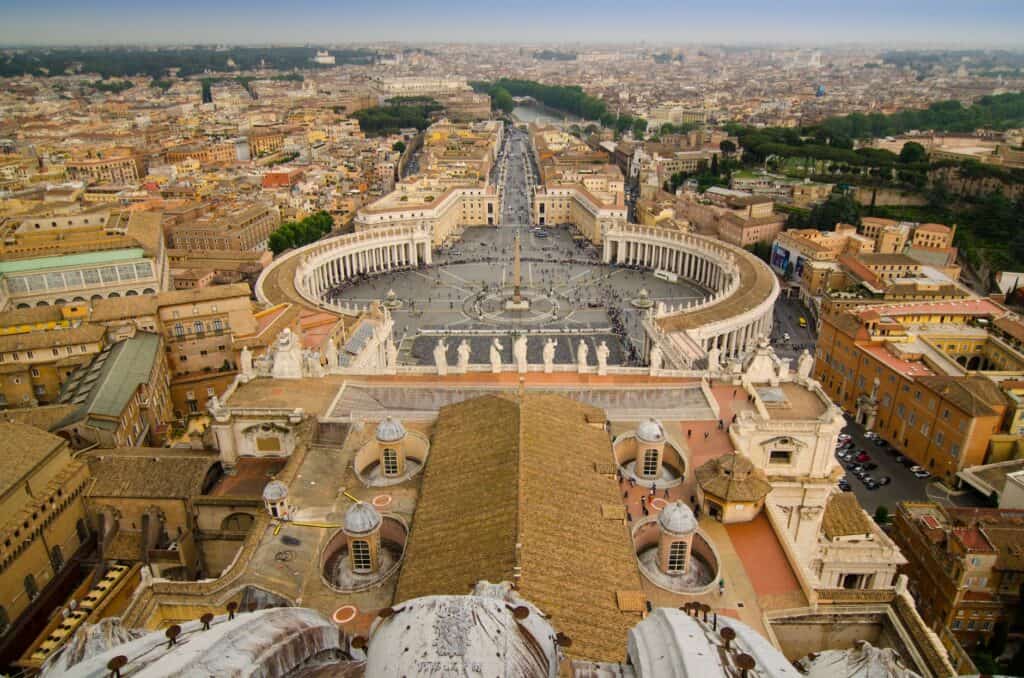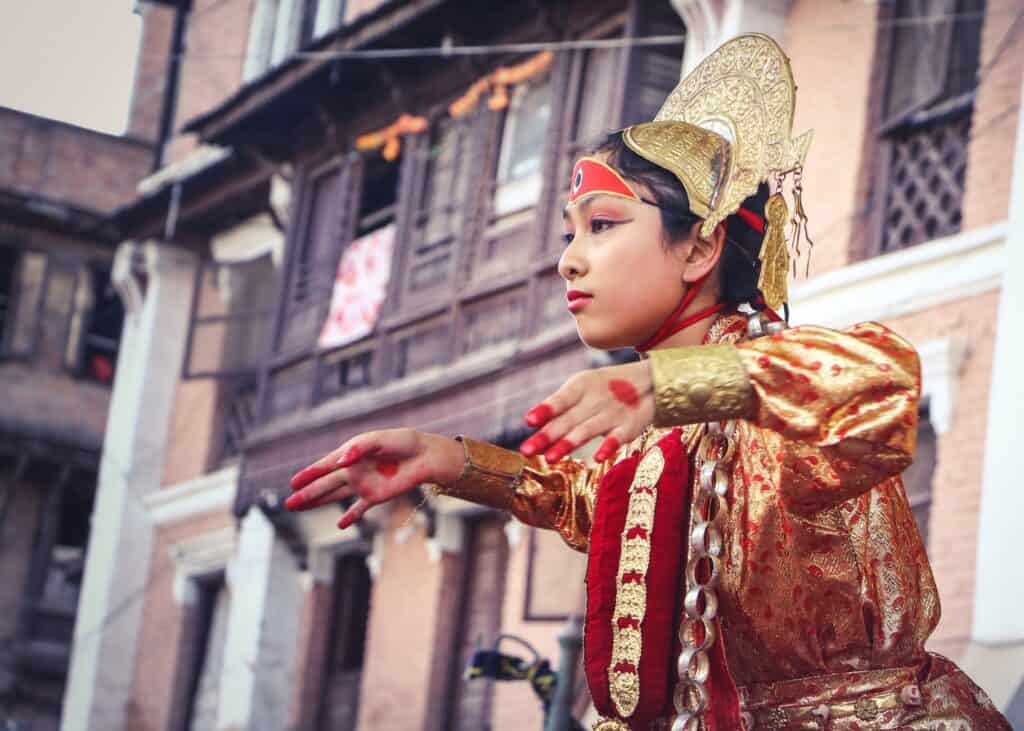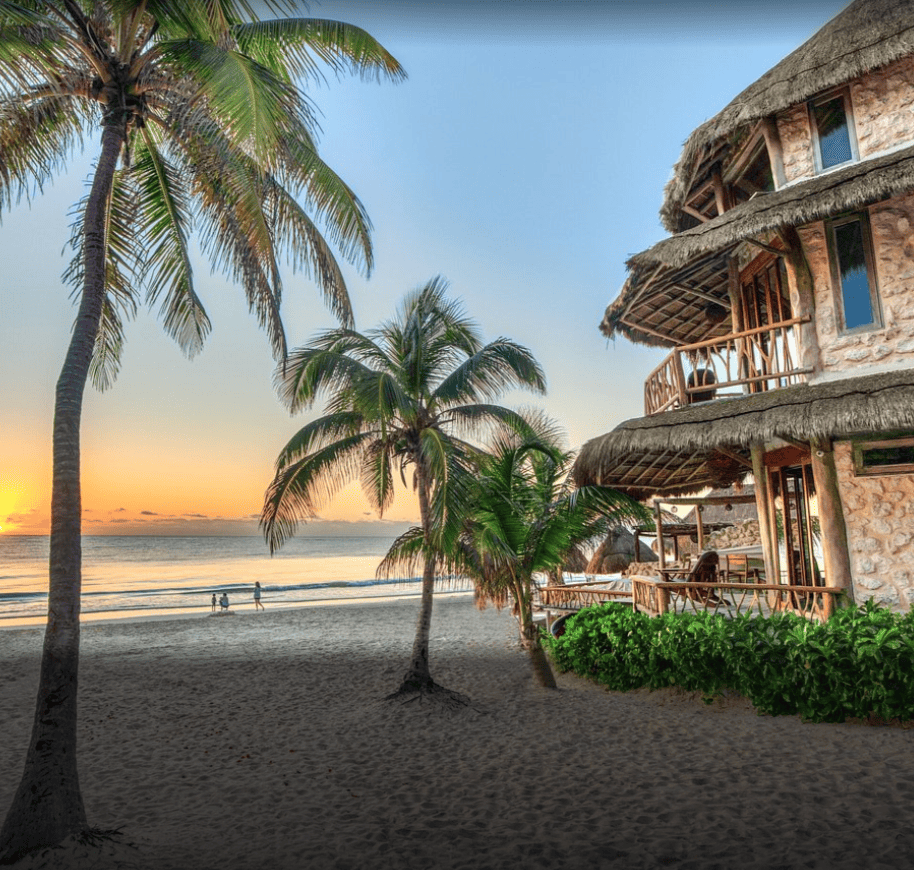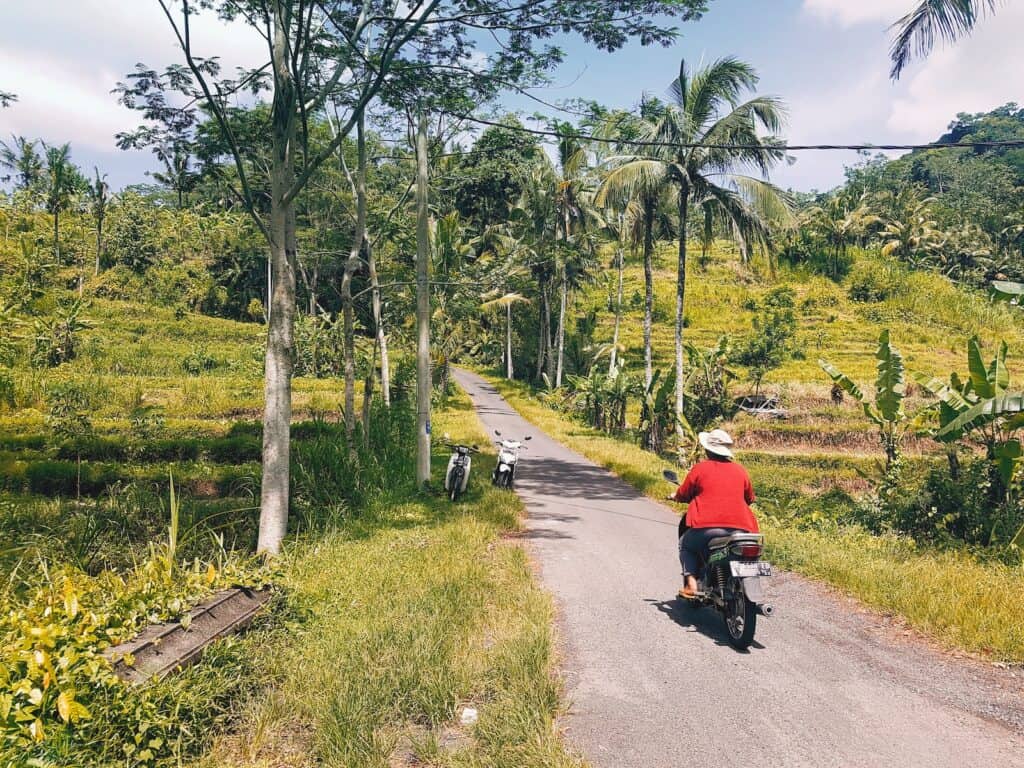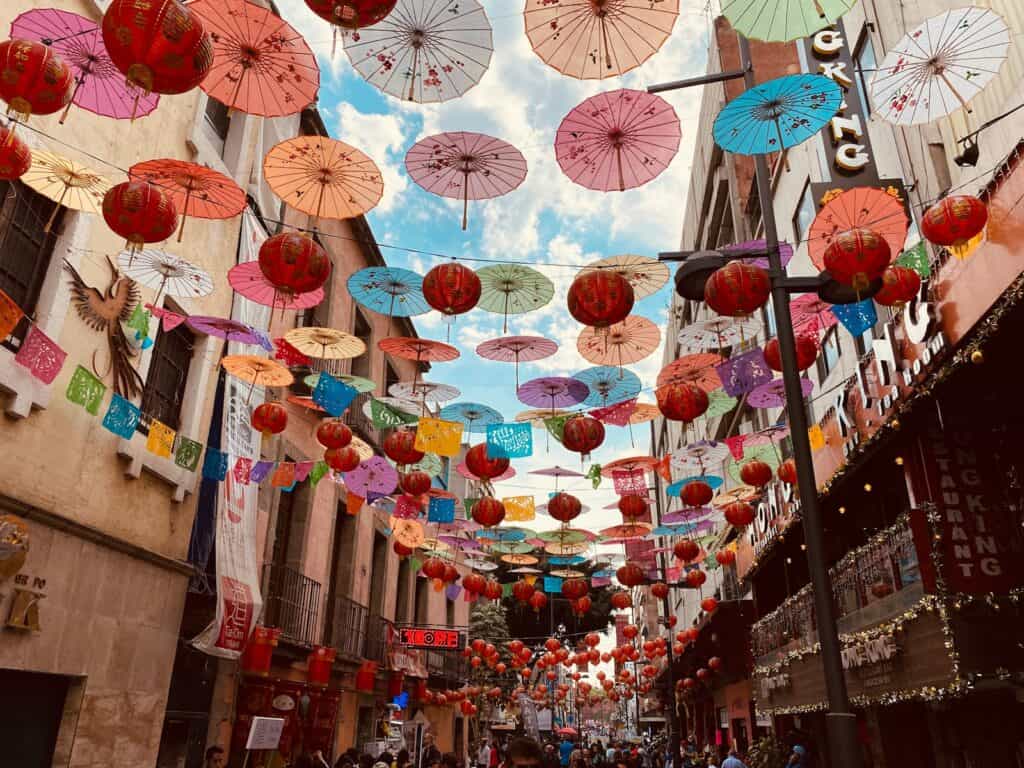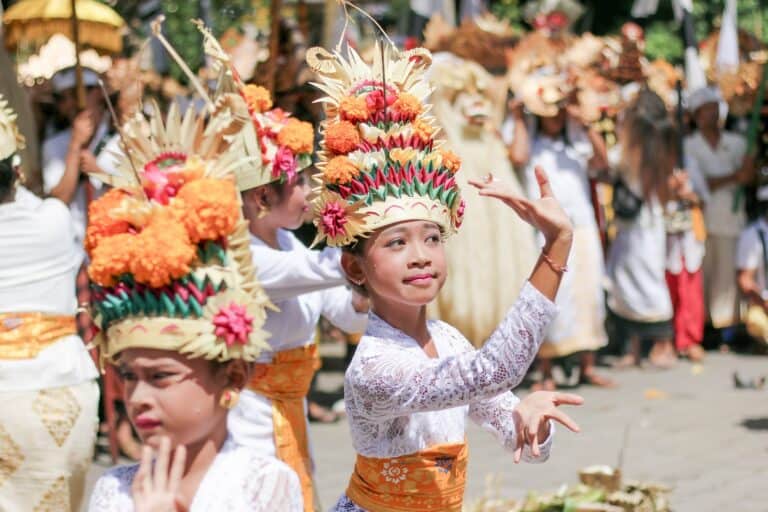Balinese Spirituality: What is it? Why is it so Unique and Special?
If you have travelled to Bali, you will have noticed that there is something special and unique to the Balinese spirituality and traditions. But what is it?
Baleinese spirituality is a vast and profoud (and slightly confusing topic!) So, in this post, I will help you uncover what Balinese spirituality is and why it is so different to other cultures around the world.
Even if you consider yourself a none religious or spiritual person, I challenge you to experience Bali with a open mind and heart!
Bali teaches us that spirituality is about oneness with all things and cultivating a deep respect for nature and oneother. (Something I think the world needs alot more of currenlty!)
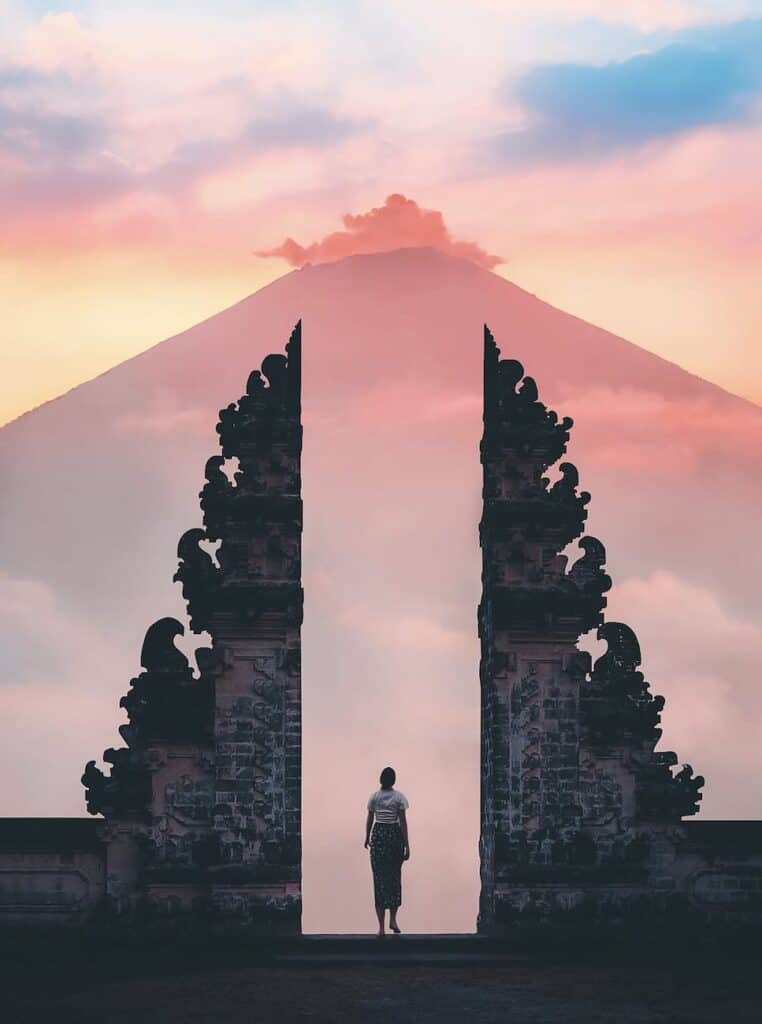
Bali is an island like no other, in my opinion. I have been travelling and living here on and off for eight years now. I have come to realise, with each trip, that Bali has a unique and profound set of spiritual beliefs and systems, unlike any other I have come across on my travels.
Living in Bali and experiencing Balinese spirituality first hand, helped me understand spirituality on a deeper level, rather than constantly seeking it in the skies or the unseen.
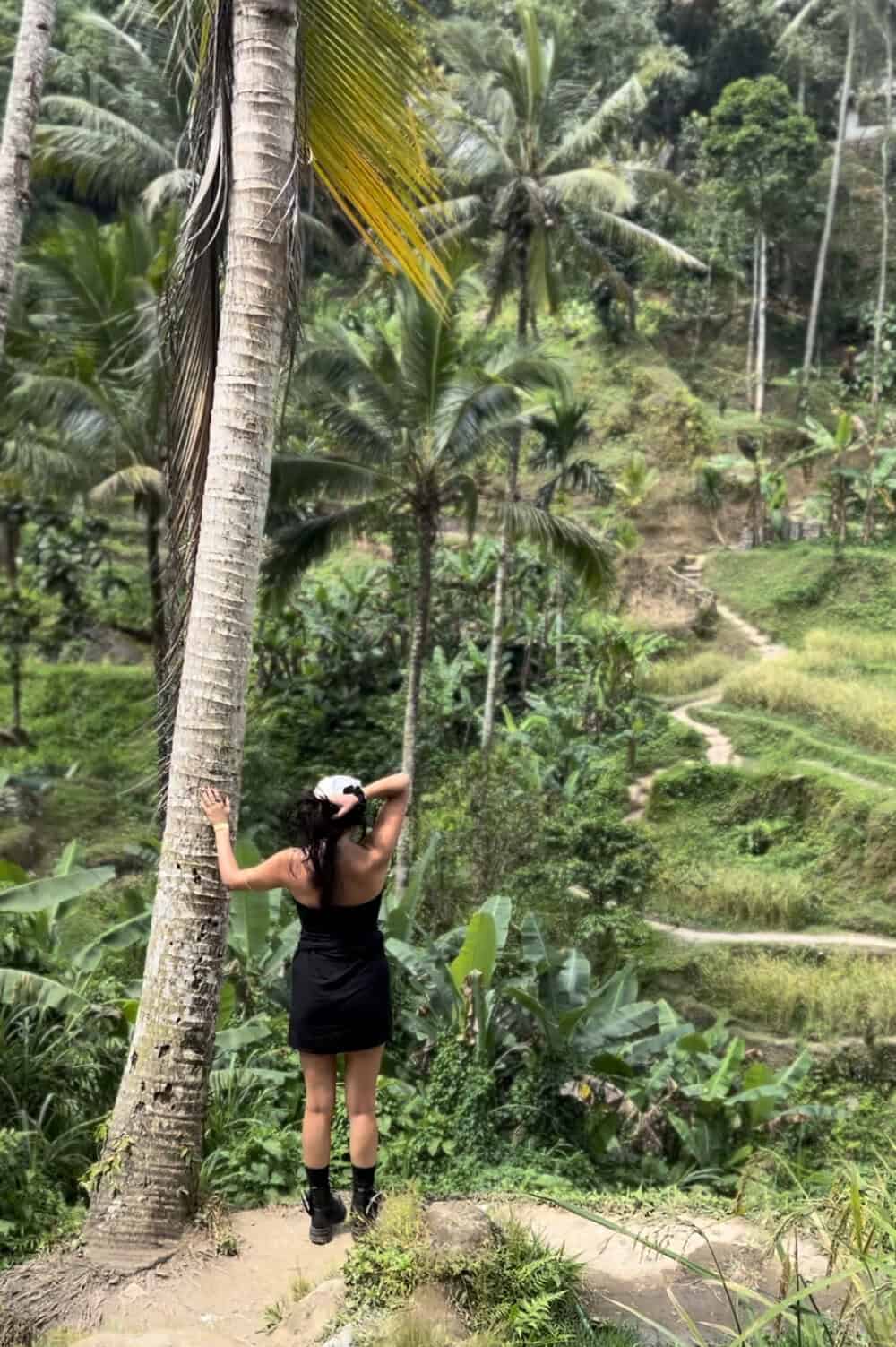
Balinese spirituality taught me that we can seek spirituality in nature, architecture, the people we meet and who we are.
This is why I initially fell so deeply in love with Balinese spirituality; from their buildings been built in certain ways to harmonsie with nature, adorning temples with intricate carvings, to thier vibrant ceremonies and community spirit, which punctuates their daily life.
Balinese spirituality weaves a tapestry of beliefs, rituals, and customs that beautifully blend sacred ancient traditions with reverence for nature.
Indonesia Essentials
Indonesian VISA Info
Cheap Flights (SKYSCANNER)
Best Tours & Experiences
Best Hotels (Booking.com) / Hostels (Hostelworld)
Indonesian Pre-Paid SIM CARD
Best Nomad Travel Insurance! (Saftey Wing)
👉 If you are planning a soulful trip to Bali, check out my Authentic 3-week Bali Itinerary and Ubud Itinerary posts!
Table of Contents
Balinese Spirituality
Nestled within the Indonesian archipelago, Bali, often called the “Island of the Gods,” calls travellers worldwide with its diverse landscapes, vibrant culture, and wonderful soul. Beyond the famous scenic beaches and terraced rice fields lies an ancient spiritual heritage thriving amidst modern life.
For centuries, Balinese spirituality has shaped the very essence of Balinese society, profoundly shaping the lives of its people. Blending Hindu-Buddhist traditions, ancient animistic beliefs, and a deep respect for nature presents a unique perspective on existence and the cosmos.

During my time at an Architecture school in Bali, one fundamental concept that left a lasting impression was the Tri Hita Karana principle. Rooted in Balinese spirituality, this principle advocates for harmony and balance in all aspects of life.
Also, see Our Bali 17 Spiritual Things to Do in Bali Guide and Our Spiritual Tours in Bali Guide!
The incorporation of this principle, even into our architectural design concepts, is a compelling testament to the immense potency of Balinese spirituality and its seamless integration into every aspect of their lives.
What Are the Balinese Spiritual Beliefs?
Balinese spiritual beliefs are deeply rooted in a syncretic blend of Hindu-Buddhist traditions, animism, and ancestor worship.
These beliefs are an integral part of the Balinese way of life, influencing their culture, daily rituals, ceremonies, and interactions with the natural world. Here are some key aspects of Balinese spiritual beliefs:
Tri Hita Karana:
When I attended an architecture school in Bali, we learned about a fundamental concept: The Tri Hita Karana. The Tri Hita Karana principle in Balinese emphasizes and promotes harmony and balance.
It reflects the belief that peace and prosperity can be achieved by maintaining a harmonious relationship between three elements: humans, nature, and the divine.
Even in architecture school, we were asked to create our designs around the Tri Hata Karana. Making sure that our designs benefitted humans, nature and the divine. This is how beautifully potent Balinese spirituality is. It infiltrates every area of their life.
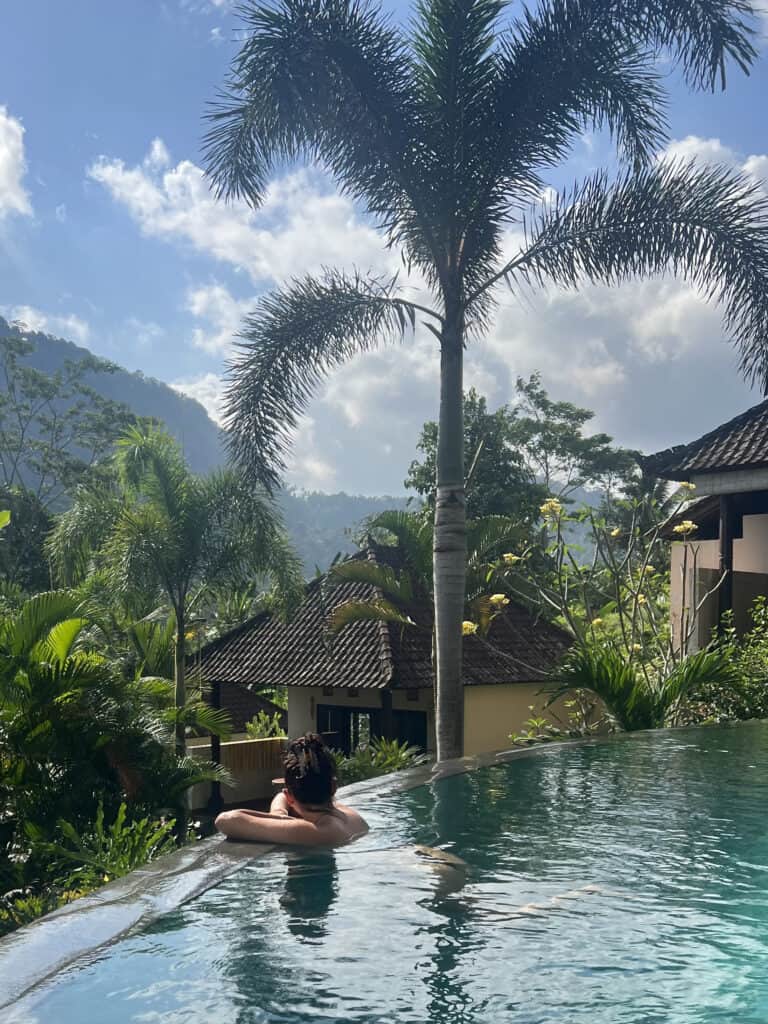
Balinese Hinduism
While Indian Hinduism influences Balinese Hinduism, it has developed distinct characteristics over time. Balinese Hindus worship a pantheon of gods and goddesses, with the Trimurti—Brahma, Vishnu, and Shiva—as the three principal deities. Each god represents different aspects of the cosmic order, creation, preservation, and destruction.
Animism and Nature Spirits
Animism plays a significant role in Balinese spirituality, where spirits are believed to reside in natural elements such as mountains, rivers, trees, and animals.
These spirits are considered both benevolent and malevolent, and the Balinese people perform rituals and offerings to appease them and seek their protection and blessings.

Ancestor Worship
Ancestor worship is an essential aspect of Balinese spiritual beliefs. Ancestors are venerated, and their spirits are believed to guide and protect living family members. Offerings and rituals are conducted regularly to honour the deceased and ensure their well-being in the afterlife.
Karma and Reincarnation
Balinese spirituality incorporates the concepts of karma and reincarnation. The actions and deeds performed in this life are believed to influence the circumstances of the next life. Reincarnation allows the soul to learn and evolve spiritually through successive lifetimes.
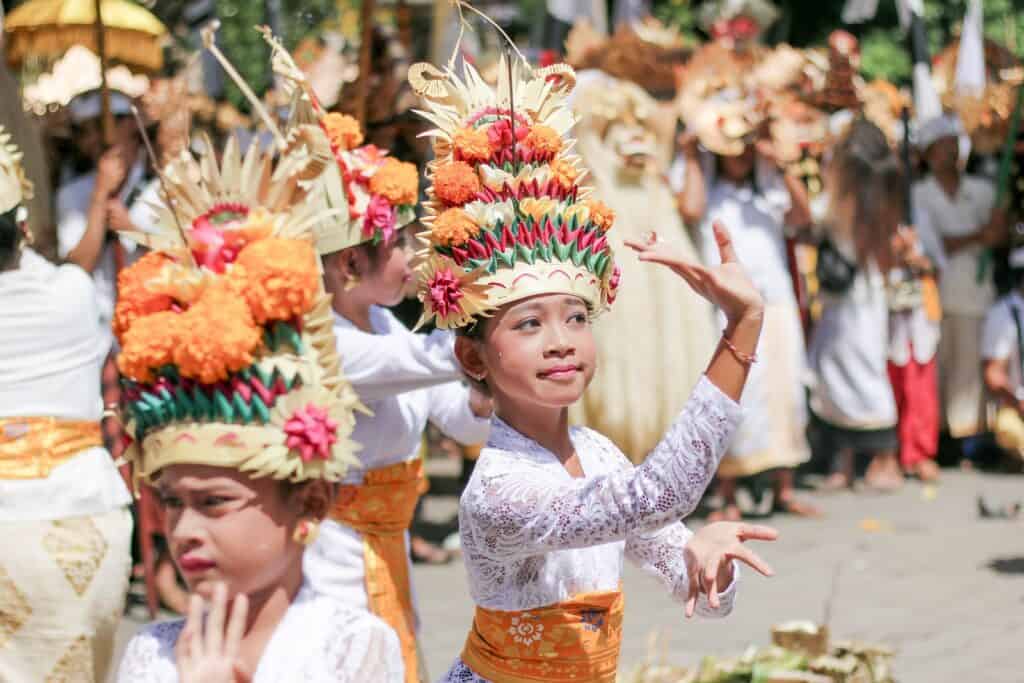
Rituals and Offerings
Daily offerings, known as “canang sari,” are essential to Balinese spiritual practice. These offerings are presented to gods, spirits, and ancestors as expressions of gratitude and devotion and a way to maintain balance in the universe.
Sacred Spaces & Temples
Temples or (pura) are remarkable in Balinese spirituality. They are sacred spaces where the divine and human worlds intersect. Each village typically has several temples, serving as centres for religious activities, ceremonies, and community gatherings.
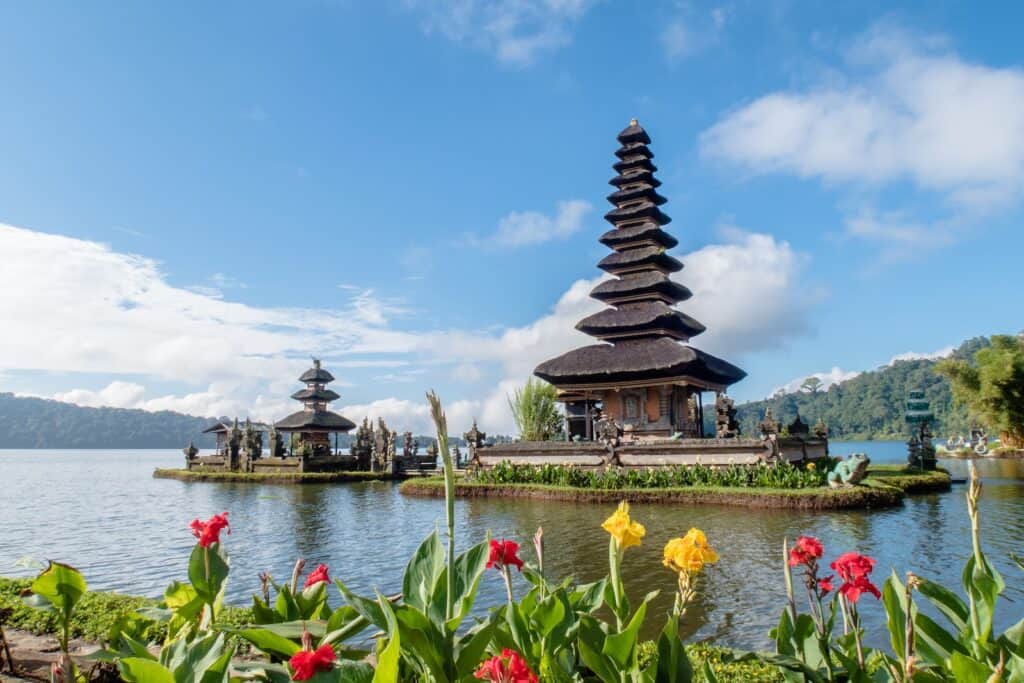
Ceremonies and Festivals:
Balinese spiritual life revolves around a rich calendar of rituals and festivals. These events mark various stages of life, agricultural cycles, and the religious calendar. Festivals are vibrant, colourful, and often accompanied by traditional music, dance, and drama.

Purity and Pollution:
Balinese spirituality emphasises the concepts of purity and pollution. Rituals and cleansing ceremonies are performed to restore purity and maintain spiritual balance.
Balinese spiritual beliefs are deeply ingrained in the cultural fabric of the island and are practised with devotion and reverence by the Balinese people.
What Is The Balinese Religion?
The Balinese religion is a unique and syncretic blend of Hindu-Buddhist beliefs and ancient animistic practices that have evolved over centuries on the Indonesian island of Bali. It is often called “Agama Hindu Dharma,” meaning “the religion of Hindu Dharma.”
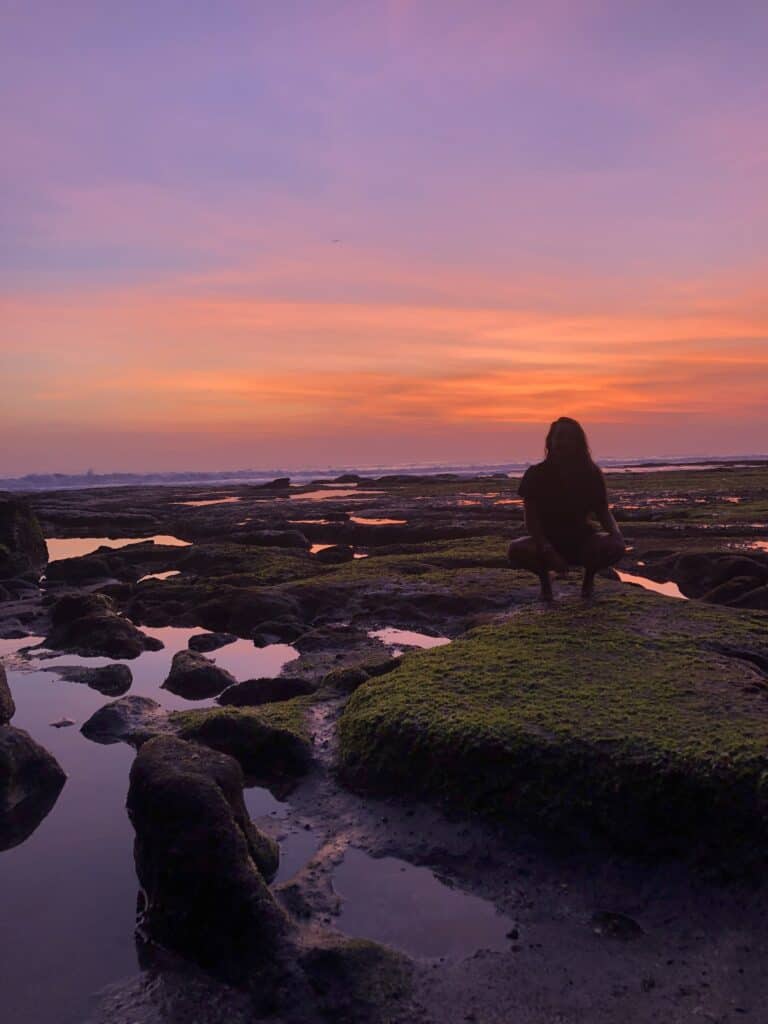
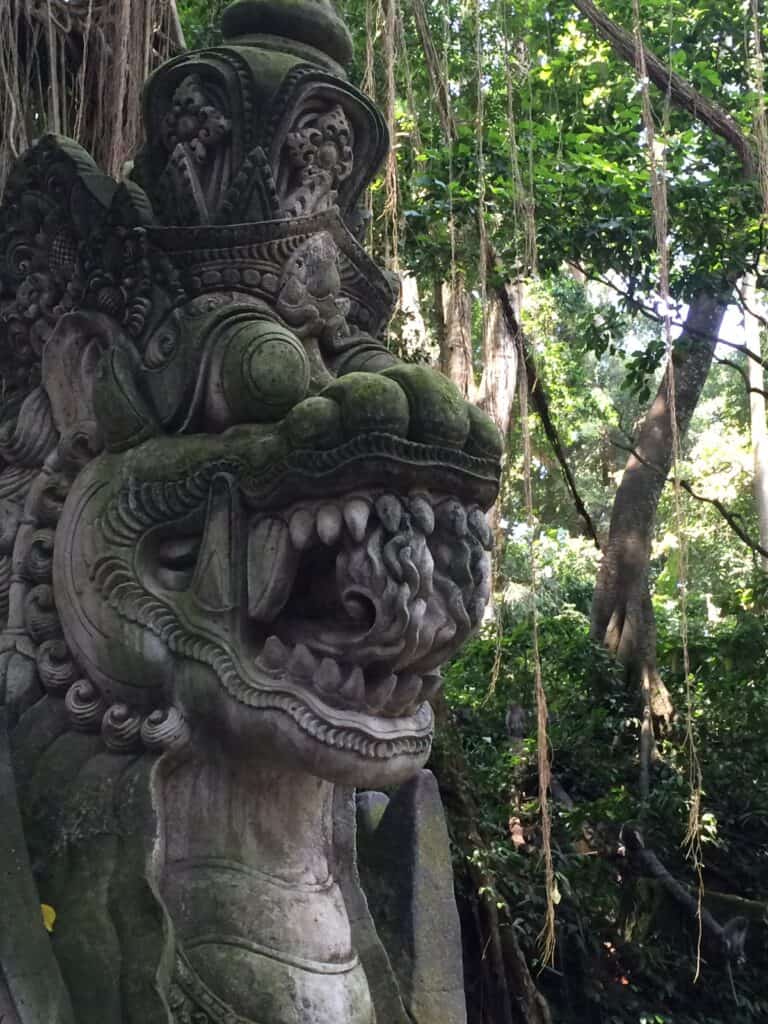
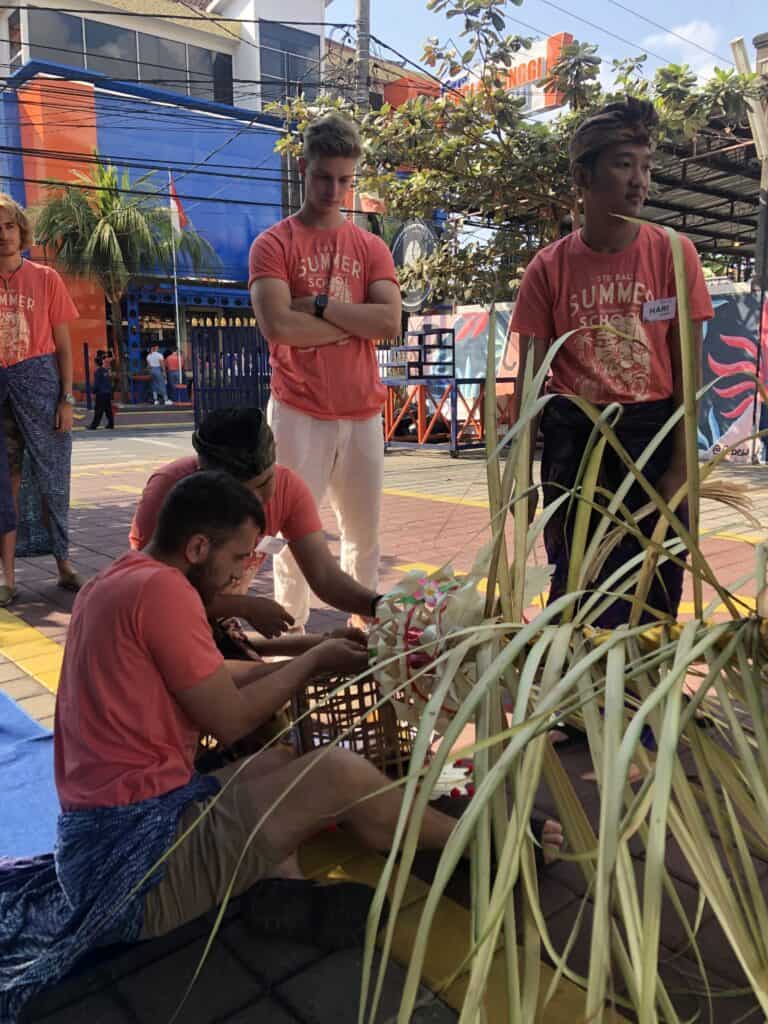
Vital Elements of Balinese Religion:
Hindu-Buddhist Influence:
The foundation of Balinese religion is based on Hinduism, primarily influenced by the classical Hinduism of India, particularly the teachings found in the Indian epics such as the Ramayana and the Mahabharata. However, Balinese Hinduism has absorbed elements of Buddhism as well.
Animism and Ancestor Worship:
Besides Hindu-Buddhist influences, the Balinese religion incorporates animistic beliefs. The Balinese people believe in spirits in natural elements such as mountains, rivers, trees, and even objects like sculptures or masks. Ancestor worship is also a prominent aspect, where deceased ancestors are revered and play a significant role in the daily lives of the Balinese.
Tri Harta Karena:
Translating to “Three Causes of Well-being.” It emphasizes the harmonious relationship between three elements: humans, nature, and the divine. Balinese believe maintaining balance and harmony between these three realms is crucial for leading a prosperous and spiritually fulfilling life.
Temple Worship:
Bali is renowned for its vast number of temples (pura) scattered throughout the island. These temples serve as sacred places of worship and are the focal points for religious ceremonies, festivals, and rituals.
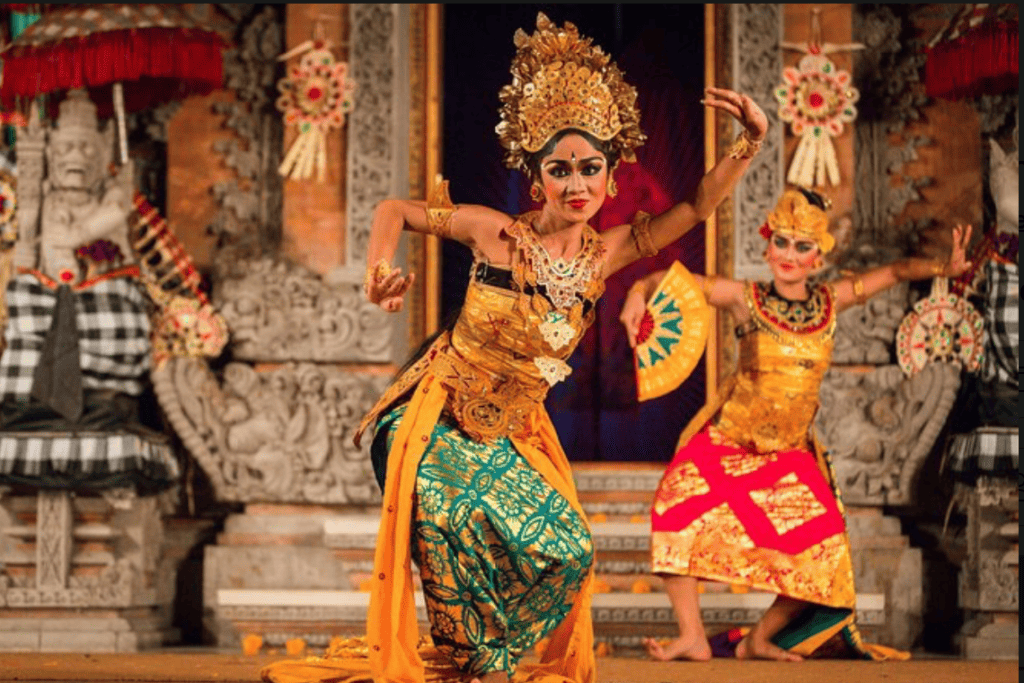
Offerings and Rituals:
Daily offerings, known as “canang sari,” are integral to Balinese religious practice. These small, woven baskets made of coconut leaves are filled with flowers, rice, incense, and other symbolic items and are presented to the gods and spirits as acts of gratitude and devotion.
In our architecture school at Study In Bali, we had a workshop teaching us how to make these beautiful sacred offerings!
Festivals and Ceremonies:
Bali’s religious calendar is filled with many festivals and ceremonies that occur regularly, celebrating various aspects of life, including temple anniversaries, agricultural events, rites of passage, and more.
Some of the most significant ceremonies can last several days and involve vibrant processions, music, dance, and ritual performances.
The Role of Priests and Community:
Balinese religion is guided by priests known as “pedanda” and “pemangku,” who play crucial roles in conducting rituals and ceremonies. The community actively participates in religious events, creating a sense of communal bonding and spiritual unity.

It’s important to note that the Balinese religion is distinct from the mainstream Hinduism practised in India and other parts of the world.
The unique synthesis of Hindu-Buddhist principles, animism, ancestor worship, and local customs has given rise to a rich and colourful tapestry of spirituality that continues to thrive in Bali’s cultural landscape.
What is the Most Spiritual Part of Bali?
Bali, often referred to as the “Island of the Gods,” is steeped in spirituality, and there are several significant spiritual places across the island. However, one area that stands out as particularly spiritual is Ubud.
Ubud is a town in central Bali, surrounded by lush green rice paddies, jungles, and sacred rivers. It has long been considered the cultural and artistic heart of the island, attracting artists, writers, and spiritual seekers from around the world.
Why is Ubud Spiritually Significant?
Sacred Temples:
Ubud is home to numerous ancient temples and shrines. These temples serve as centres of spiritual activities and host regular ceremonies and festivals.
Spiritual Retreats and Workshops:
Ubud offers various spiritual retreats, workshops, and wellness centres that cater to multiple interests, including yoga, meditation, healing therapies, and holistic practices.
Balinese Dance and Music Performances:
Ubud is known for its traditional dance and performances that often depict mythological stories and spiritual themes.
Yoga and Meditation Studios:
Ubud boasts a vibrant yoga and meditation community, with numerous studios offering classes and workshops for people of all abilities.
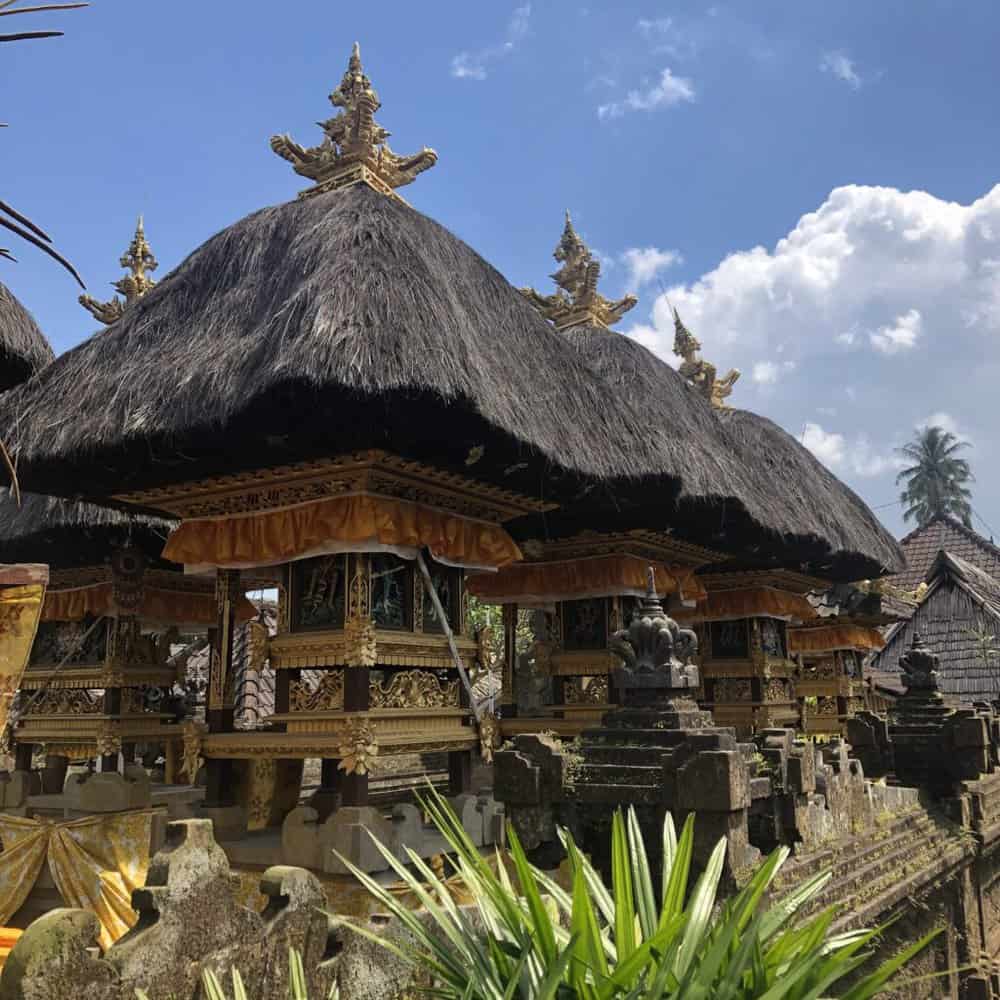
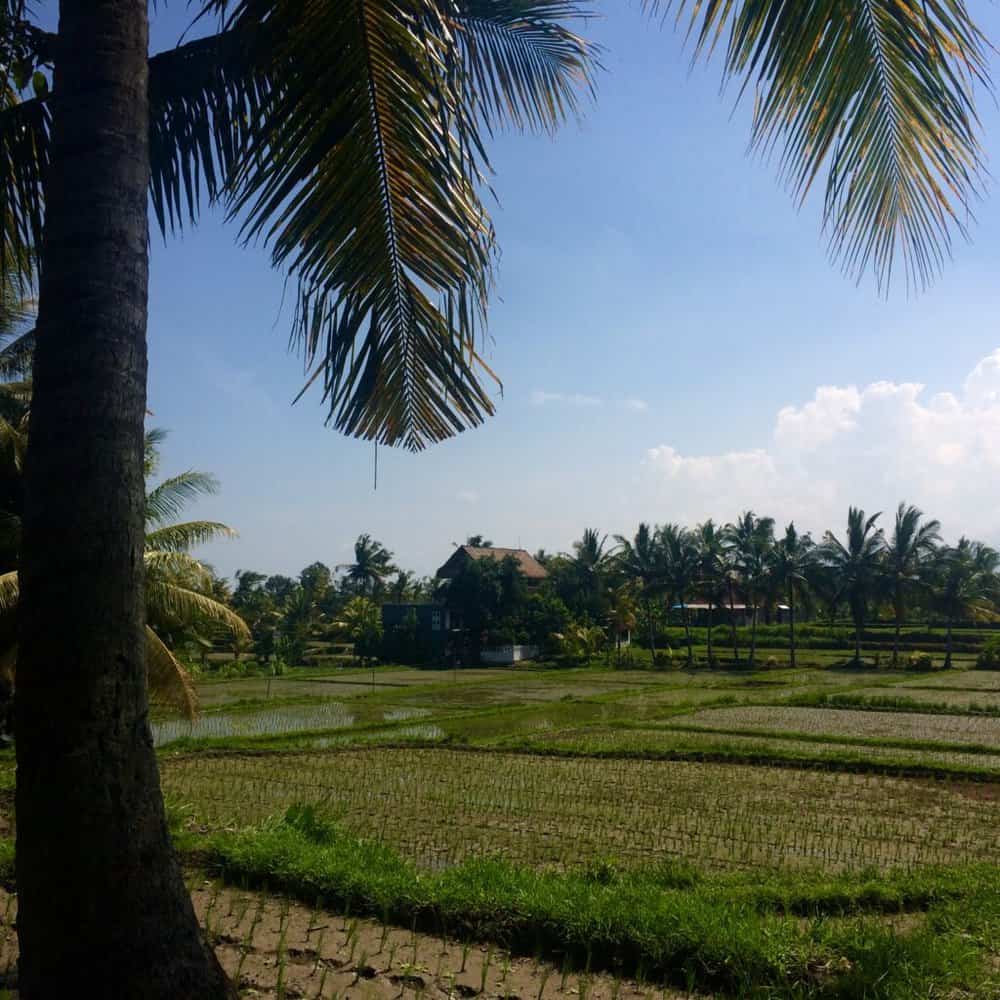
Where to Stay In Ubud: Our Recommendations!
Luxury Option: The Kanyon Resort
Nestled amidst lush tropical greenery and overlooking the serene Ayung River, The Kanyon Resort offers an exquisite luxury retreat. With an array of luxurious villas, each adorned with intricate Balinese craftsmanship, guests are pampered with unparalleled comfort and privacy.
Budget Option: Tirta Ayu Hotel
Tucked away in the heart of Ubud, Tirta Ayu Hotel is a budget-friendly gem that captures the essence of traditional Balinese hospitality. Embrace life’s simple pleasures in their cosy rooms adorned with local touches and lush garden views. The hotel’s serene jungle view pool area invites you to unwind and immerse yourself in the heart of Bali.
Unique Experience: Bambu Indah
A unique bamboo hotel that embodies sustainable luxury and artistic ingenuity. Set amidst an organic farm surrounded by cascading rice paddies, Bambu Indah offers a selection of breathtaking bamboo villas, each a work of art. Bambu Indah is a testament to the harmonious blend of nature and design.
Spiritually Significant Locations In Bali
Besides Ubud, many other profoundly sacred and spiritually significant places to the Balinese are must-sees if you visit Bali. Here are some of my favourite holy sites in Bali:
- Gunung Agung (Mount Agung) – The highest peak in Bali, Mount Agung is considered the abode of the gods and holds significant religious importance.
- Kintamani – Kintamani is spiritual to the Balinese as it encompasses Mount Batur and its surrounding volcanic landscape, holding significant religious importance and serving as a place for rituals and offerings to the gods.
- Pura Luhur Uluwatu – Perched on a cliff overlooking the Indian Ocean, this temple is revered as a spiritual anchor and is a prominent place for sunset rituals.
- Tegalalang Rice Terraces: These picturesque rice terraces in central Bali are a breathtaking natural marvel and hold spiritual significance as a symbol of harmony with nature and the land’s fertility.
- Batur Natural Hot Springs: The hot springs near Mount Batur are believed to have healing properties and are regarded as a place for spiritual cleansing and rejuvenation.
- Gitgit Waterfall: Nestled in Bali’s lush jungles, Gitgit Waterfall is believed to be a sacred site where locals conduct cleansing rituals, connecting with the pure energy of flowing water.
- Tenganan Pegringsingan Village – An ancient Balinese village known for preserving its unique customs and sacred textiles, showcasing the essence of Balinese spirituality.
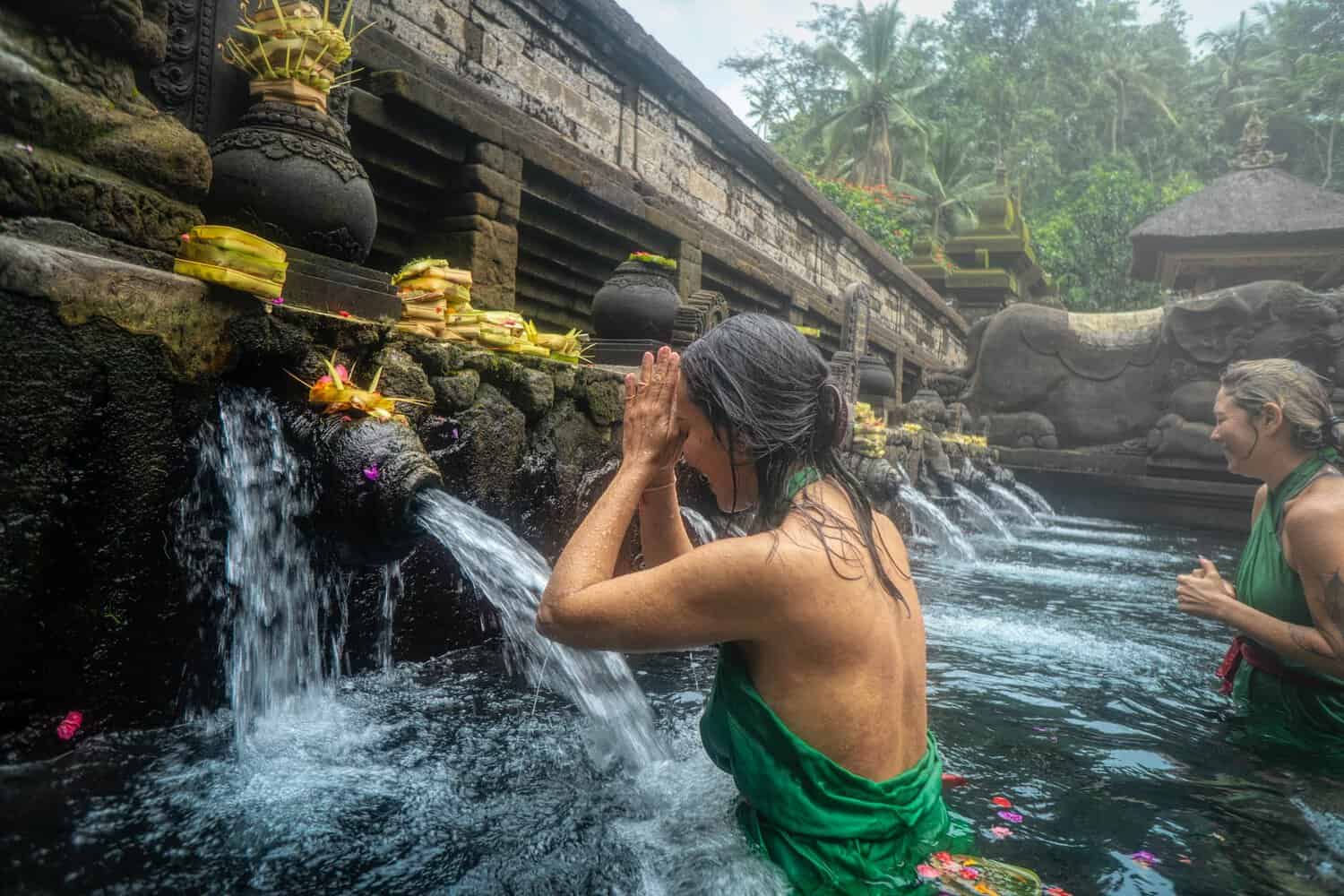
These places are aesthetically captivating and deeply embedded in Bali’s spiritual fabric, serving as anchors for the island’s rich and vibrant spiritual heritage.
Best Sacred Architecture Sites in Bali
Bali is renowned for its stunning sacred architecture, with numerous temples and sites showcasing its rich cultural and spiritual heritage. Here are some of the best-sacred architectural sites in Bali:
- Besakih Temple: Often called the “Mother Temple” of Bali, Besakih is the island’s most significant and holiest temple complex. It is perched on the slopes of Mount Agung and consists of 23 separate temples, each with its unique significance.
- Tanah Lot Temple: One of Bali’s most iconic temples, Tanah Lot is located on a rocky islet in the sea. It is known for its unique offshore setting and is a popular spot for spectacular sunsets.
- Uluwatu Temple: Positioned dramatically on a cliff’s edge overlooking the Indian Ocean, Uluwatu Temple is renowned for its stunning location and mesmerizing Kecak dance performances during sunset.
- Ulun Danu Beratan Temple: Situated on the shores of Lake Bratan in Bedugul, this water temple is a striking example of traditional Balinese architecture and reflects harmony with its natural surroundings.
- Goa Gajah (Elephant Cave): An ancient archaeological site featuring a cave adorned with intricate stone carvings, Goa Gajah holds spiritual significance as a place for meditation and cleansing.
- Tirta Empul Temple: This sacred temple is famous for its holy spring, where Balinese Hindus come to bathe and purify themselves in the sacred waters.
- Pura Lempuyang Luhur: Located on the slopes of Mount Lempuyang, this temple complex is known for its “Gateway to Heaven” or “Gates of Heaven” entrance, offering breathtaking views of Mount Agung.
- Pura Taman Ayun: Surrounded by a picturesque garden, this royal temple in Mengwi is known for its impressive architecture and tranquil surroundings.
- Pura Luhur Batukaru: Nestled on the slopes of Mount Batukaru, this temple is surrounded by lush rainforest and is a secluded and spiritually charged site.
- Pura Goa Lawah: Sometimes called the ‘Bat Cave’ Temple. Pura Goa Lawah is a unique temple built surrounding a cave inhabited by thousands of bats and holds significance for its protection and spiritual symbolism.
Each sacred architectural site showcases the artistic excellence and deep spirituality woven into the fabric of Balinese culture, making them must-visit destinations for anyone exploring the island’s rich heritage.
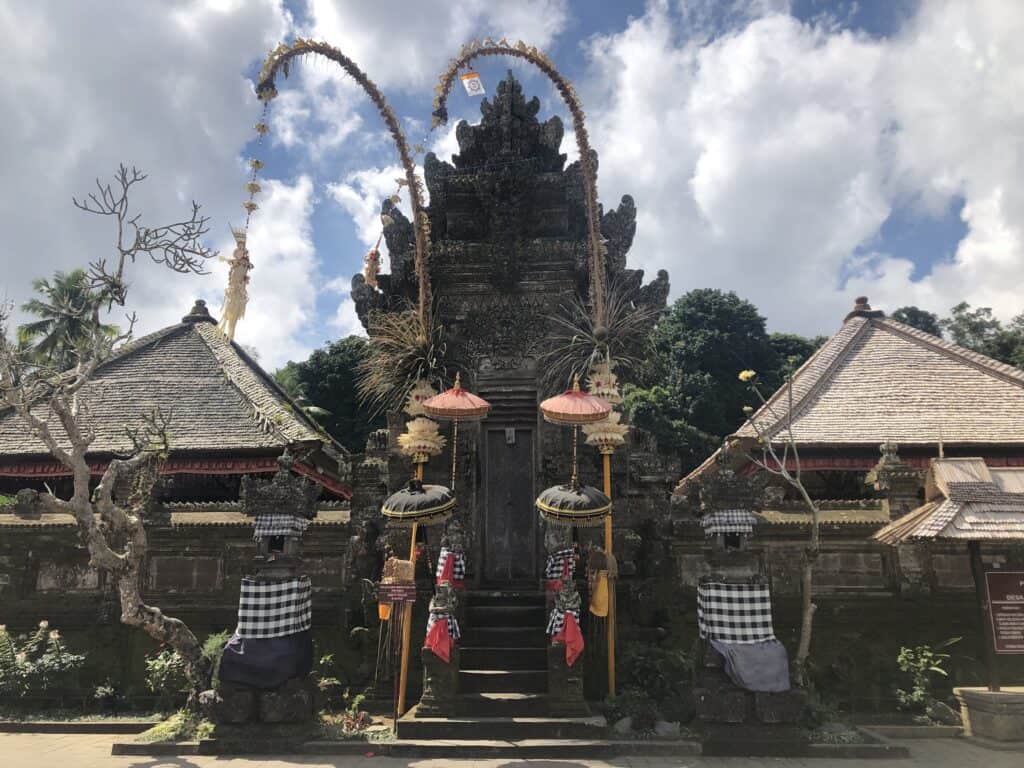
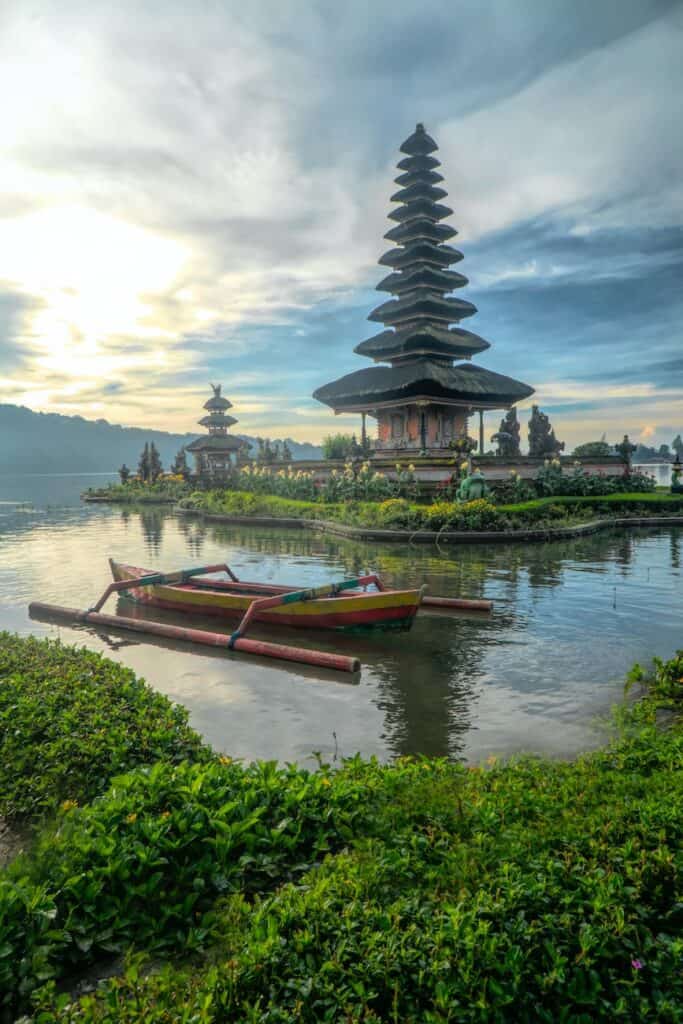
Bali, Kundalini & Earth Charka Theory
Vortex’s in Bali:
The enchanting Island of Bali is believed to be a sacred energy vortex intricately linked to the Earth’s Kundalini energy. Bali is an extraordinary island believed to have a unique spiritual power.
This energy comes from two strong lines that meet in Bali, making it a unique and vibrant place. Just like the Kundalini energy in our bodies can help us grow and change, Bali’s energy is thought to do the same for the Earth.
Spiritual Journeys to Bali:
When you visit Bali, you might feel renewed and inspired. The island’s energy fills the air with a special feeling that makes you think deeply about yourself and your life. It’s where you’re encouraged to explore your inner self, like going on a personal journey.
Being in Bali’s energy can help you become more aware of yourself and make positive changes. Just like the Earth benefits from the energy here, your soul and body are refreshed and revitalised.
Bali’s energy has a way of you in, making you feel connected to nature and everything around you. If you have ever been to Bali, you will know what I’m talking about.
This is why millions of Expats flee there every year and struggle to leave. Some never do! And for those that have to return to their lives back home, Bali is etched in their heart forever more.
Bali’s Connection to Nature:
As you explore the island’s lush landscapes, beautiful waterfalls, and ancient temples, you might feel a stronger desire to discover more about yourself and heal from within.
Bali’s role as the Earth’s energy centre reminds us of the importance of our connection to nature. It encourages us to respect and harmonise with the Earth’s rhythms.
Visiting Bali is an invitation to renew your spirit and awaken to new possibilities. It’s a beautiful reminder of the ongoing dance between humans and nature and a chance to embrace the ancient wisdom surrounding us.
Balinese Spirituality Conclusion
Exploring the captivating realm of Balinese spirituality is a soul-enriching journey that everyone (I beleive), regardless of their religion or beliefs, should be open to experiencing at least once in their life.
Balinese spirituality goes beyond the boundaries of world religions, teaching us to connect with nature and live in harmony with the natural world. In today’s fast-paced and overconstructed society, these teachings are more important than ever.
Amidst Bali spiritual allure and ancient rituals, one cant help but feel drawn into a deeper connection with nature and a greater appreciation for life.
Balinese spirituality serves as a powerful reminder of the eternal dance between humanity and the divine. Even if you do not consider yourself as spiritual. Bali will sure make you think twice on what could really be out there!
Thank you for reading our post uncovering Balinese Spirituality! See more posts on Sacred Footprints HERE!
RECENT POSTS on Sacred Footprints
- The Gunung Padang Megalithic Site: Uncovering New Depths of History
 The fascinating UNESCO World Heritage Gunung Padang Megalithic Site stands as an enigmatic relic of a bygone era, shrouded in mystery and controversy. Nestled amidst…
The fascinating UNESCO World Heritage Gunung Padang Megalithic Site stands as an enigmatic relic of a bygone era, shrouded in mystery and controversy. Nestled amidst… - Best Pilgrimage Routes in Europe: 31 Wonderful Journeys of Faith
 Want to embark on some Life-Changing Pilgrimage Routes in Europe? We have 31 show-stopping trials to inspire you today. Amid our hectic lives, a timeless…
Want to embark on some Life-Changing Pilgrimage Routes in Europe? We have 31 show-stopping trials to inspire you today. Amid our hectic lives, a timeless… - Best Spiritual Tours in Nepal: The Most Epic, Beautiful and Life-Changing Tours!
 Embarking on a spiritual tour in Nepal promises a profound and transformative journey. When I visited the Everest region for one month to hike and…
Embarking on a spiritual tour in Nepal promises a profound and transformative journey. When I visited the Everest region for one month to hike and… - The Best Sustainable Eco-Tourism Places to Stay in Mexico 2024 – Beautiful & Unique Stays
 Looking for the Best Eco-Tourism Places to Stay in Mexico? Well, we have got you covered. The quest for sustainable travel experiences has never been…
Looking for the Best Eco-Tourism Places to Stay in Mexico? Well, we have got you covered. The quest for sustainable travel experiences has never been… - How To Plan an Epic Budget-Friendly Trip to Southeast Asia
 Are you looking for tips on how to plan a budget-friendly trip to Southeast Asia? We’ve got you covered. Budget travel is all about balance….
Are you looking for tips on how to plan a budget-friendly trip to Southeast Asia? We’ve got you covered. Budget travel is all about balance…. - Sustainable Tourism Options in Mexico – An Implementation of Hope
 Are you wondering if there are sustainable tourism options in Mexico? Well, the answer is yes, absolutely! Mexico is forthcoming in sustainable and eco-tourism, with…
Are you wondering if there are sustainable tourism options in Mexico? Well, the answer is yes, absolutely! Mexico is forthcoming in sustainable and eco-tourism, with…


